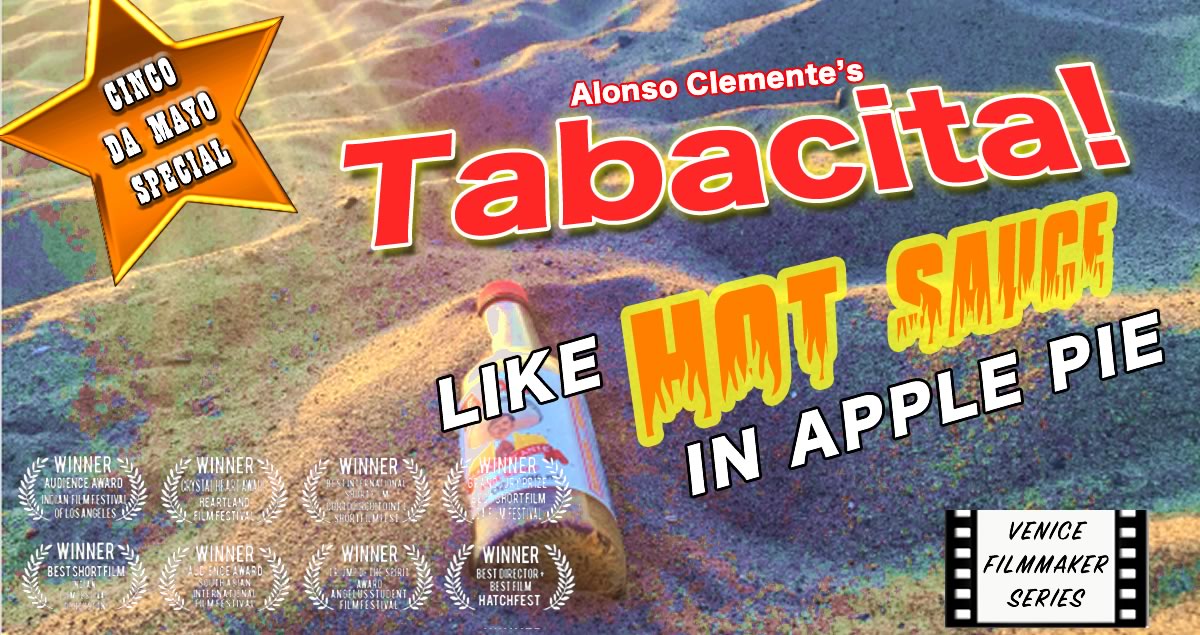A concatenation of neorealism, cultural dyslexia, and a-rhythmic humor, Alonso Clemente’s Tabacita, which takes place ten years hence, is an Indy Mexican Dramedy set in Los Angeles.
One half of its hero, Gabriel (Jose Alvarez), spelunks about East LA with his paternal twin, Martina (Maria Garcia), chirping Linklater-esque dialogue in fluent Spanish on what it means to be American (English is only an operational-defunct setting spawned by the characters’ disillusionment with the medium for most of act one), all amidst the crumbling and jarring architecture of East LA, seen through a smoggy lens as a kind of a devalued character.
The movie is a sort of politico-defacto, both with its racially-charged subplot – Martina is in the US illegally – and the fact that the dynamic duo are budding coders for a group called the RIC, “Radical Information Collective” (Think EFF-esque, but hackers.) By modeling a program after their twin-speak language the wiry pair invent a novel form of stacking information that affords them an internship with a recalcitrant software developer Greg (Wayne Cordoski) in the now bourgeois Silicon Beach (Venice Beach, Director Clemente’s hometown) for an unnamed corporate conglomerate (presumably, a kind of ten years advanced, faux Google).
Thrown between the prospect of money and principles, the Twins, one part captivated one part disillusioned with this “Traje” (“Suit”), as they call him, and his world of Corporicana, vacillate over wether or not to stay. Wayne Cordoski’s portrayal of Greg, as a sort of Finding Forrester meets Boiler Room mentor, is distinct, if not redeemable. The pairs time at the company offers, if possible, a nuanced look at an Orwellian metaphor. Ultimately, Gabriel continues the apprenticeship with Greg and Martina returns to East LA and the RIC. The telepathic component of the program they created heightens as their paths dovetail, forcing a poetic reconciliation of motives.
Hacktivist coding scenes pumped with a sort of visual-Ritalin editing style gilded by what sounds like pseudo-psychedelic Tool covers are successful, but the techy side of the film ultimately steers away from this “matrixy” attitude, veering instead towards a primarily mundane, if not raw depiction of young talent in a locked up reality, (evocative of Ivan Denisovich’s experience, a character from the eponomously titled Russian Novel of 1962, A Day in the Life of Ivan Denisovich, during a rather uneventful day in a Soviet labor camp).
Castor H. Dominguez’s screenplay places complex characters between the simulacra of a corporate reality and what feels like an iron curtain of cultural immigration. Questions on the nature of security, and freedom pepper an up-beat ride through these digitized frameworks. Jose Alvarez’s depiction of Gabriel transitions from an intellectually taught assault upon the faceless wall of capitalism into an interest in information platforms and access to understanding them.
Not dissimilar to The Firm, the final turnkey for the film is that the company Gabriel thought he understood, blackmails him to disclose the whereabouts of the RIC. Gabriel must decide between giving up the anarchist group and therefore his sister, or facing imprisonment and flushing the promising future that is being offered to him. The moment of truth will not disappoint. Overall, it simplifies where convolution might loom, and charms where formula could reign.
“Tabacita” is rated R (Under 17 requires accompanying parent or adult guardian) for strong language, brief sexual content and informational disclosure. In Spanish, with English subtitles.
Running time: 1: hour 39 minutes. Now Playing at the Rutger Hauer Nexus-9 Dine-in/Drive-thru Theater on Clearmont.
